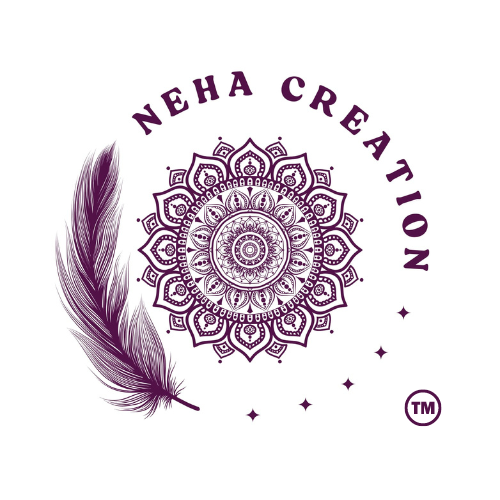In a world where mental clutter and daily stress are constant companions, the practice of mindfulness offers a much-needed path to peace. One of the most effective and artistic ways to achieve mindfulness is through mandala art. With its intricate patterns, symmetrical beauty, and meditative quality, mandala art is more than just a creative outlet—it’s a tool for emotional healing, mental clarity, and spiritual growth.
This article explores how engaging with mandala designs can elevate your mindfulness practice and improve your overall well-being.
What is Mandala Art?
The word mandala comes from Sanskrit and means “circle.” In spiritual and cultural traditions across Hinduism, Buddhism, and other belief systems, mandalas represent the universe, unity, and the cycle of life. Traditionally used in meditation and rituals, mandalas have evolved into a widely appreciated art form used for creative expression and personal transformation.
Mandala art involves detailed, symmetrical patterns drawn in circular formations. These complex designs invite focus, calm, and a sense of balance—core elements of any effective mindfulness practice.
The Connection Between Mandala Art and Mindfulness
Mindfulness is the practice of being fully present and engaged in the current moment without judgment. It involves directing your attention to your thoughts, feelings, and physical sensations in a non-reactive way.
Mandala art promotes mindfulness by engaging your senses and focusing your attention on the present task—whether you're drawing, coloring, or simply observing a mandala.
Here’s how mandala art supports mindfulness:
-
Brings your mind into the present: When you focus on the symmetry and patterns of a mandala, your thoughts naturally slow down, allowing you to be fully immersed in the moment.
-
Reduces anxiety and stress: Repetitive patterns and circular motions can have a calming effect on the nervous system, much like traditional meditation.
-
Encourages non-judgmental observation: Mandala art is personal and unique. There are no mistakes, only opportunities to explore, observe, and learn.
Mental and Emotional Benefits of Practicing Mandala Mindfulness
Engaging with mindful mandala drawing or coloring offers a variety of mental health benefits:
1. Enhances Concentration
Creating or coloring mandalas requires close attention to detail, which trains your brain to stay focused—a skill that translates well into everyday life.
2. Promotes Emotional Balance
The symmetry and color choices in mandala art help to reflect and balance your emotions. It allows for emotional release in a safe, creative way.
3. Boosts Self-Awareness
As you create or observe mandalas, you may begin to notice your inner thoughts and feelings more clearly, leading to increased self-understanding.
4. Deepens Meditation Practices
Many use mandalas as visual meditation tools. Gently focusing your gaze on a mandala design helps still the mind and enhances meditative awareness.
How to Practice Mindfulness with Mandala Art
There’s no right or wrong way to use mandalas for mindfulness, but here are some simple steps to get you started:
1. Mandala Coloring for Relaxation
Pick a coloring book with intricate mandala patterns. Choose your colors intuitively. Let go of perfection and simply enjoy the process.
2. Create Your Own Mandala
Start with a blank page and draw a circle. Use tools like compasses and rulers to create symmetrical patterns, or freehand your design. Focus on your breath as you draw.
3. Mandalas for Journaling
Add mandalas to your mindfulness journal or mood tracker. Use them to express how you’re feeling through colors and shapes.
4. Use Mandalas in Meditation
Print or purchase a mandala wall art and use it as a meditation focal point. Gaze softly at the center and breathe deeply to quiet your mind.
Mandala Art for Wellness Spaces
Incorporating mandala artwork into your environment can passively support your mindfulness journey. Here's how:
-
Home décor: Hang a mandala painting in your meditation or yoga corner to elevate the calming energy of the space.
-
Workspaces: A small mandala print on your desk can serve as a visual reminder to pause and breathe during a busy day.
-
Mindfulness centers: Many healing studios and retreat spaces use mandala murals or tapestries to create a grounding and welcoming atmosphere.
Why Mandala Art is a Timeless Mindfulness Tool
What makes mandala art so timeless is its ability to merge artistic creativity with inner awareness. It doesn’t demand perfection or advanced skill—just your attention and presence. The circular nature of mandalas reminds us of the cyclical flow of life, helping us to release control and embrace the present moment.
Whether you spend 5 minutes coloring a design or 2 hours drawing your own, each moment spent with mandala art brings you one step closer to peace.
Final Thoughts
Elevating mindfulness through mandala art is a gentle, accessible, and fulfilling way to calm the mind, explore emotions, and nourish your inner world. As you dive into the mesmerizing world of patterns and colors, you'll find a sacred space within yourself where clarity, focus, and healing flourish.
So pick up your pen, your brush, or your coloring pencils—let mandala art guide you into mindfulness, one pattern at a time.


